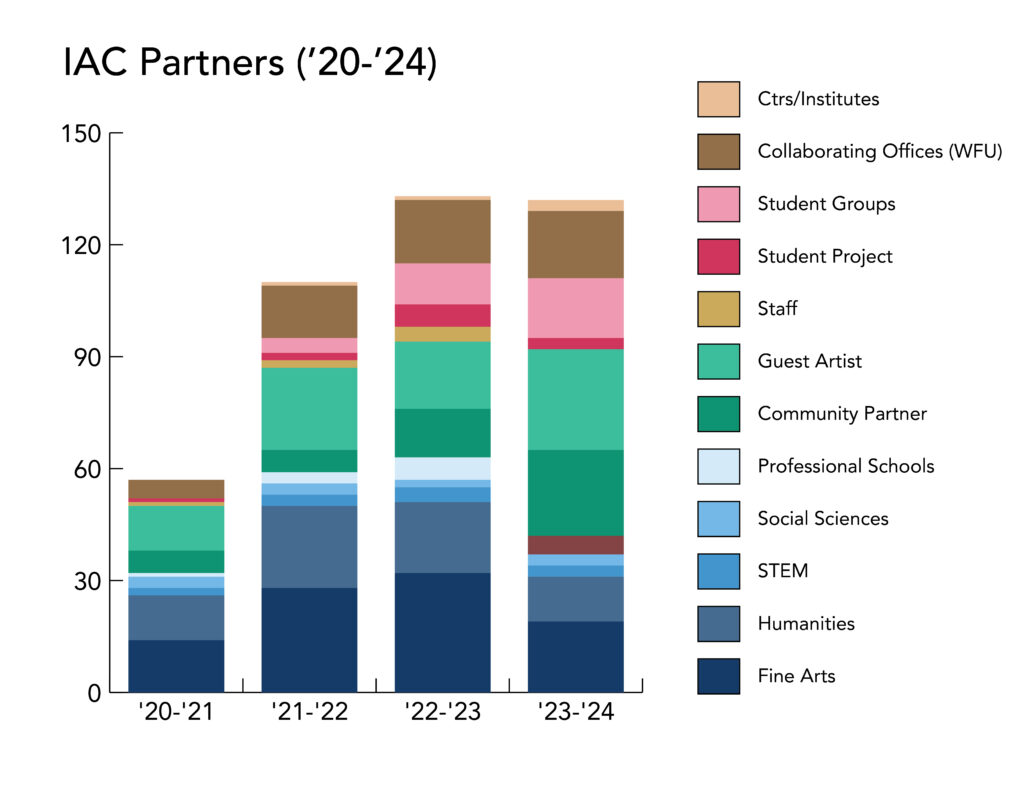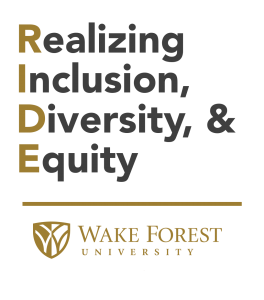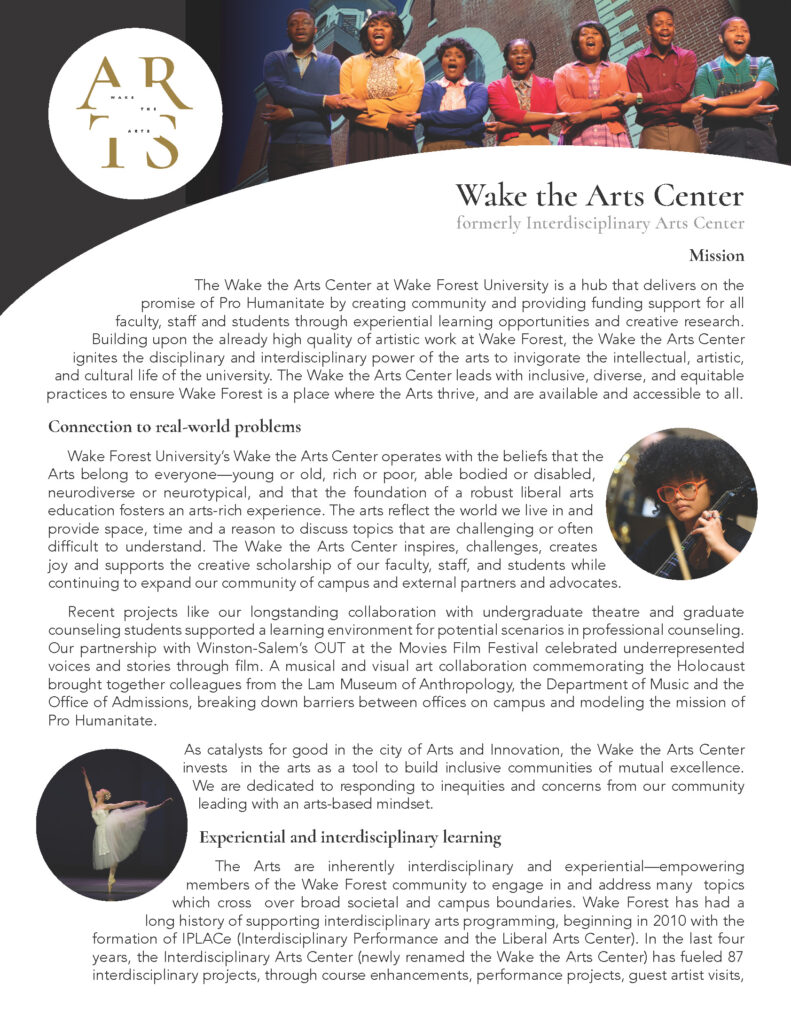Wake the Arts Center
Wake the Arts Center at Wake Forest University delivers on the promise of Pro Humanitate by creating community and promoting experiential learning opportunities and creative research. Building upon the already high quality of artistic work at Wake Forest, Wake the Arts ignites the disciplinary and interdisciplinary power of the arts to invigorate the intellectual, artistic, and cultural life of the university. Wake the Arts leads with inclusive, diverse, and equitable practices to ensure Wake Forest is a place where the Arts thrive, and are available and accessible to all.
History
Learn about the history of the Wake the Arts Center from 2012 to the present.
Connection to real-world problems
Wake Forest University’s Wake the Arts Center operates with the beliefs that the Arts belong to everyone—young or old, rich or poor, able bodied or disabled, neurodiverse or neurotypical, and that the foundation of a robust liberal arts education fosters an arts-rich experience. The arts reflect the world we live in and provide space, time and a reason to discuss topics that are challenging or often difficult to understand. The Wake the Arts Center inspires, challenges, creates joy and supports the creative scholarship of our faculty, staff, and students while continuing to expand our community of campus and external partners and advocates.
Recent projects like our longstanding collaboration with undergraduate theatre and graduate counseling students supported a learning environment for potential scenarios in professional counseling. Our partnership with Winston-Salem’s OUT at the Movies Film Festival celebrated underrepresented voices and stories through film. A musical and visual art collaboration commemorating the Holocaust brought together colleagues from the Lam Museum of Anthropology, the Department of Music and the Office of Admissions, breaking down barriers between offices on campus and modeling the mission of Pro Humanitate.
As catalysts for good in the city of Arts and Innovation, the Wake the Arts Center invests in the arts as a tool to build inclusive communities of mutual excellence. We are dedicated to responding to inequities and concerns from our community leading with an arts-based mindset.
Experiential and interdisciplinary learning
The Arts are inherently interdisciplinary and experiential—empowering members of the Wake Forest community to engage in and address many topics which cross over broad societal and campus boundaries. Wake Forest has had a long history of supporting interdisciplinary arts programming, beginning in 2010 with the formation of IPLACe (Interdisciplinary Performance and the Liberal Arts Center). In the last four years, the Interdisciplinary Arts Center (newly renamed the Wake the Arts Center) has fueled 87 interdisciplinary projects, through course enhancements, performance projects, guest artist visits, commissioned works, exhibitions, panel discussions, receptions, lectures, and research and conference support, demonstrating the teacher-scholar model in action. Our application process is straightforward and fair. Projects are received and evaluated on a rolling basis by our advisory committee, usually within 48 hours.
Student impact and external reach
For two consecutive years, the Wakeville Student Arts Festival has created a platform for students in the performing and visual arts to highlight their work to the campus and wider community. Wakeville student leaders plan and execute the day-long event, working closely with Wake the Arts, Campus Life, dozens of student arts organizations, and student artists to reach hundreds of attendees each year. Next year’s Wakeville will be coordinated closely with Admissions, to welcome families visiting for Accepted Students Days. Similarly, Wake World, one of the only required events during First-Year Student Orientation, features a student-devised original theatrical production about adjusting to college. Directed by Wake Forest Theatre faculty and co-created with student designers and performers, Wake World consistently ranks among the most memorable and impactful experiences at New Student Orientation.
Over the past four years,
the Wake the Arts Center has:
- collaborated with 34 academic departments and programs, including African American Studies, Chemistry, the School of Business and the School of Medicine.
- collaborated with 25 additional units on campus, including the Humanities Institute, Literacy Center, the Lam Museum of Anthropology, the Program for Leadership and Character, and the Center for Research, Engagement and Collaboration in African American Life (RECAAL).
- supported 57 projects involving partnerships with LGBTQIA+ and/or BIPOC collaborators and/or content.
- supported 30 projects with global/international representation.
- supported 29 projects involving partnerships with local community.



